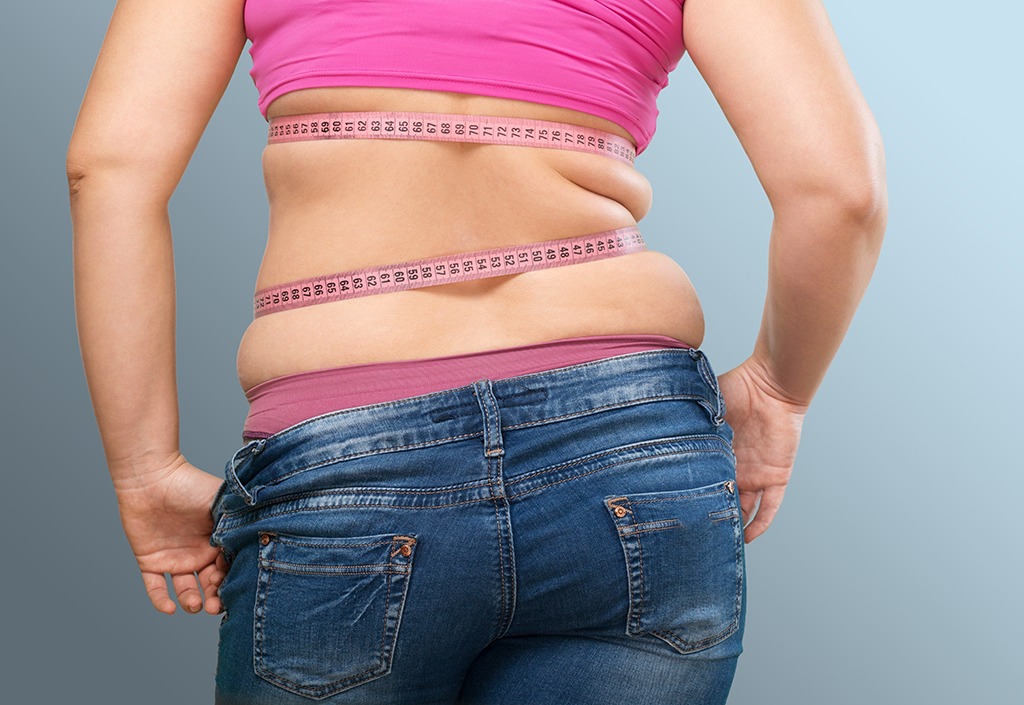12 Realities of Yo-Yo Dieting You Need to Hear

I never thought of myself as a yo-yo dieter until one particular night when I was dining out with a friend.
“Oh, what diet are you on now?” my friend asked me when I ordered my burger with no bun and salad instead of fries. “Last time I saw you, it was Weight Watchers—and weren’t you Paleo before that?”
I felt my face flush; I didn’t want to admit that those had failed, I gained the weight back, and now I was trying Atkins. Looking back at photos from over the years, I really never look exactly the same: I was thinner around my wedding, heavier after a year of marriage, thinner during a challenging time at work…but all those various figures were really due to trying one diet, giving up after a period of time (even with positive results), and then moving on to something else.
The truth? The yo-yo dieting cycle is exhausting—I could barely remember if I was on a diet or “allowed” to eat something, and I never knew which jeans (skinny or forgiving) were going to fit the way I wanted them to. So, I finally broke the cycle by just trying to eat balanced meals every day and not let food dictate my life so much—which is, of course, easier said than done. But not only is yo-yo dieting frustrating, it’s not a healthy way of life; it can cause severe damage to your body and even prevent it from losing weight at all! Here’s what the experts say you need to know so you can stop the pattern or nip it in the bud. After you’ve familiarized yourself with the truths about yo-yo dieting, don’t miss these 17 Reasons You Regain Weight After Losing It.
It Encourages An Unhealthy Relationship With Your Body

When you’re constantly taking your body in different directions—from heavier to thinner—and switching gears in how you get there, it takes an emotional toll on your mental wellness. “Yo-yo dieting externalizes body hatred into a cycle that is damaging to the body and soul,” explains Dr. Rachel Carlton Abrams, MD and author of BodyWise. “But the takeaway is this: If you’ve been a yo-yo dieter, you can still lose weight. Start with connecting with your body and cultivating an appreciation for yourself just as you are.” Also, remember that the most successful weight loss programs are moderate: a reduction in calories accompanied by adding exercise (ideally at least 45 minutes several times a week). “Make these changes for the long term because you deserve to feel well,” says Abrams. “In other words, don’t ‘diet.’ Change the way you approach it for your long-term happiness.” This kind of self-compassion is one of the 30 Ways to Be Happier This Year.
The Results Are Never Consistent

“The truth is that yo-yo dieting isn’t a permanent solution. It’s usually restrictive and eliminates many healthy items that contribute vitamins and minerals that your body needs in order to thrive and look its best!” explains Tone It Up founders Karena Dawn and Katrina Scott, who created a nutrition plan for lasting success. For another easy place to start, check out these 18 Foods Diet Experts Eat Every Single Day!
It Leads to Depression

The psychological effects of yo-yo dieting can be severe, leading to depression and a lack of confidence because you’re never truly satisfied with how you feel. “An individual loses the weight and feels great about themselves. The reasons for the increased sense of emotional well-being is validation, due to the compliments received and the overall way they are treated,” explains Dr. Charles Passler of the Pure Change nutritional program. Plus, there’s a perception that when you lose weight, you’ll get a better job, have more dates, and be treated better overall. While that’s not necessarily true, yo-yo dieting makes you believe that when your weight is down, your life is going to be up—and vice versa, causing very real and unnecessary mood swings. To detach your level of self-confidence from the number on the scale, employ these 33 Tips for Total Confidence.
It Makes You a Victim

Lifetime weight loss is a skill that you develop when you are in control of your eating, says Ken Immer, CCHE and President & Chief Culinary Officer of Culinary Health Solutions. “When we eat unconsciously—which can go hand-in-hand with yo-yo dieting, we inevitably have some ‘unintended consequences,'” he says. “These include things like weight gain, or worse, diabetes and heart disease. When we are in control of our eating and make well-informed choices, we recognize the power of the foods that we are eating and we own the consequences. I don’t believe there are ‘good’ and ‘bad’ foods; there are just the consequences of eating them.”
It Makes You Fixate on Unrealistic Numbers on the Scale

Not having a backup plan is one of the reasons that yo-yo dieting exists; it becomes a desperate strategy, especially when you have a certain number on the scale that you think you should hit. But Immers says there is a big problem with that mentality. “Even if you actually arrive at this weight—or even a lower number—you’ll never just stay there. Everyone has at least between 5-10 pounds that they will naturally fluctuate within, even with a balanced diet and moderate activity.”
It Encourages You to Have Two Very Different Eating Patterns

Yo-yo dieting actually perpetuates two totally eating patterns that are usually extreme. “One pattern tends to be very restrictive and no fun while the other is full of food favorites,” explains Immer. “Bouncing back and forth is self-perpetuating because the extreme behavior that results in the ‘quick results’ tends to be like stretching a rubber band. The further you go, the stronger the stretch brings you back. When you gain weight back, it is often more than you lost, and there is the ‘yo-yo’.” And then think about this: when you have such a ‘restrictive’ menu without real habits in place, you feel deprived and just look forward to bingeing on those cheat foods again. What to do? “Develop a conscious eating plan that includes your favorite foods so that you stay happy,” suggests Immer. “This can help your body maintain a healthy weight that will fluctuate a little bit over time—but the difference between ‘weight fluctuation’ and ‘yo-yo’ dieting is that you know you have achieved lifetime weight loss when you don’t have the anxiety about gaining weight.”
It Damages Your Metabolism

“Yo-yo dieting slows down your basal metabolic rate and damages your metabolism,” explains Dr. Westin Childs. “Calorie deprivation for more than 21 days causes a direct change in your basal metabolic rate to match the calorie intake that you consume. This has been coined ‘starvation’ mode and this negative effect can remain for years after the calorie restriction occurred.” It also increases leptin levels and causes leptin resistance—leading to an increase in appetite, constant food cravings, and a decrease in metabolism. Worried you’ve already done some harm to your metabolism? Find out the Best Ways to Speed Up Your Metabolism now!
It Can Decrease Your Lifespan

With so many detrimental effects that yo-yo dieting can have on your overall health and well-being, you’re ultimately risking your chances of living a long (and healthy) life. “Since these types of diets cannot be maintained, the poor habits will return—causing you to regain the weight and then some,” explains Dr. Scott Michael Schreiber. “With each attempt, the starvation phase becomes more restrictive, causing muscle wasting and retention of body fat. Your body remembers each starvation phase and ‘holds-on’ to the fat in reserve as an energy source. During these periods, cortisol is elevated and has been associated with artery damage, decreased energy, type 2 diabetes, and retention of body fat.” And not only are you training your body to anticipate and fight against your efforts, Schreiber says it can push forward obesity and associated health problems, such as heart disease, diabetes, high blood pressure and certain types of cancers.
It Makes You Resistant to Losing Weight

In theory, dieting is supposed to help you improve your overall health. But as we just mentioned, yo-yo dieting actually causes your body to break down and resist those changes. “The instinct of your body is to find and stay in homeostasis, which is matching its function according to its environment,” explains fitness expert Mike Clancy. “Think of homeostasis as the body’s innate goal, separate from whatever your goals are. Since dieting is naturally a stressor to the body, it’s important to slowly make adjustments at a pace that your body can handle. When done properly, dieting allows for the body to adapt and catch up to the internal changes and patterns without being overstressed, while still yielding results.” But when there are too many changes or the adjustments to your eating routine are extreme, your body resists because it’s fearful that there’s a problem. “Cortisol rises,” he continues. “Adrenal glands become stimulated. Leptin increases. Hormones become imbalanced and hunger levels become unpredictable. To complicate matters, any form of exercise that incorporates an intensity will only further fatigue and damage the metabolic activity. The harder you push, the more the body will rebel. It’s important to diet slowly and make small changes over time.” Why not keep a journal of your progress? Here are 10 Tips for Keeping a Food Journal for Weight Loss.
It Can Make Visceral Fat Build Up

When our bodies lose weight, they tend to start at the top and bottom of our bodies, leaving visceral fat in the abdomen for last, says Dr. Candice Seti, The Weight Loss Therapist. “Some bodies don’t ever get to the point of losing it there,” she says. “And when we gain weight back, the abdomen is the first place we add it. So, the effects of yo-yo dieting ultimately increase visceral fat in our midsection. Visceral fat is the fat in our bodies that collects in our abdomens, surrounds our internal organs, and wraps around our heart.” Yikes! This type of fat is normal is small amounts but is very dangerous as it increases. Visceral fat is metabolized by the liver and ultimately turns into blood cholesterol, which collects in the arteries and narrows them. These clogged arteries can eventually lead to angina, heart disease, heart attack, stroke, and other cardiac symptoms. Visceral fat is also responsible for the release of hormones that trigger insulin resistance, type 2 diabetes, systematic inflammation, heart disease, and other cardiovascular diseases.
Soda drinkers are similar to yo-yo dieters in that they are begging for the evil visceral fat, too. An extensive study showed that daily soda drinkers had 1.8 pounds of visceral fat—and a “soda belly” so big that it made their tummies protrude to that of having a 24-week fetus in them. These are the 70 Most Popular Sodas—Ranked by How Toxic They Are.
It Can Lead to Inflammation

Yo-yo dieting can lead to inflammation in your body that may increase your risk for cardiovascular abnormalities. “Research has shown that weight cycling may increase your risk for a heart attack, stroke, and metabolic syndrome—as well as hypertension, changes in adipose tissue fatty acid composition, visceral fat accumulation, and the increased risk for insulin resistance,” explains Laura Cipullo, RD of Whole Nutrition Services. “Fluctuations in blood pressure, glomerular filtration rate, blood glucose also may occur during weight cycling. This can put extra stress on the cardiovascular system which could ultimately lead to a cardiac event.” Bottom line? Yo-yo dieting will make you sick, not skinny.
You Have the Power to Turn Things Around

Even if you’ve tried countless diets, you can turn the negative effects of yo-you dieting around by making your food work for you. “Feed your body real food that it knows how to digest. Exercise to jumpstart your metabolism and burn more calories,” suggests Sara Doll, co-founder of Gluten Free Daily. “To achieve your ideal body weight and image, your daily habits and mindset need to be changed.” This means losing weight gradually so that your results can stick. Change your habits to have a better relationship with food, respect your body and give it what it needs to work efficiently, and try to make healthy switches that you enjoy and don’t think twice about. Motivated? Great! Now get started with these 25 Ways to Organize Your Kitchen for Weight Loss Success!